Coming out has changed for the better for Generation Z . . . at least somewhat, according to media aimed at young adults. Young, queer characters are central to the biggest television shows and films in pop culture, capturing the new generation's radical love approach to their identity and sexuality. And while this focus is encouraging for normalizing what queerness looks like in coming-of-age stories through earnest and nuanced lenses, it's important to note that it is Millennial or older storytellers who are usually the ones delivering these narratives that neverthless express a practical cautiousness of society's shortcomings.
Both projects address the complexities and the joys of coming out and the devastation that happens when that is robbed of you.
In its second season, Netflix's British romance series "Heartstopper," based on the graphic novel by Alice Oseman, tells the endearing love story between Charlie (Joe Locke) an out teenager who crushes on his schoolboy seatmate Nick (Kit Connor), who eventually realizes he's bisexual and reciprocates Charlie's feelings. By the end of the second season, Nick comes out proudly to the entire school that he is dating Charlie.
Meanwhile, Prime Video's adaptation of Casey McQuiston's novel "Red, White, and Royal Blue" follows the blossoming enemies-to-lovers story between early 20-somethings Alex (Taylor Zakhar Perez), the bisexual son of the President of the United States, and Henry (Nicholas Galitzine), a closeted gay grandson of the King of England (think Prince Harry if he was queer).
Both projects address the complexities and the joys of coming out and the devastation that happens when that is robbed of you. In "Heartstopper," Nick struggles initially because he appears to be heteronormative to everyone else and has never questioned his identity until Charlie. His bisexuality is hard for people to grasp as well because it is not so simply gay or straight but a sexuality of its own. Nick must reckon with his ideas of masculinity because of his privileged role fitting in a traditionally masculine space as captain of the rugby team.
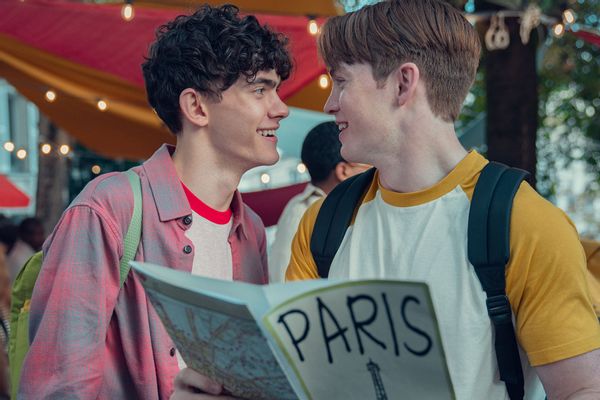 Joe Locke and Kit Connor in "Heartstopper" (Teddy Cavendish/Netflix)Despite his internal conflict, Nick's eventual coming out is received positively by his rugby teammates, peers and his parents (the only pushback he receives is from his homophobic brother). Nick's status as a conventionally attractive, masculine, popular rugby player makes the transition easier than for others. Although Nick chooses when to disclose his sexuality and to whom, that is not the experience of Kit Connor who plays Nick, who was forced to come out as bisexual on Twitter last year when fans began speculating and criticizing his presumed sexuality.
Joe Locke and Kit Connor in "Heartstopper" (Teddy Cavendish/Netflix)Despite his internal conflict, Nick's eventual coming out is received positively by his rugby teammates, peers and his parents (the only pushback he receives is from his homophobic brother). Nick's status as a conventionally attractive, masculine, popular rugby player makes the transition easier than for others. Although Nick chooses when to disclose his sexuality and to whom, that is not the experience of Kit Connor who plays Nick, who was forced to come out as bisexual on Twitter last year when fans began speculating and criticizing his presumed sexuality.
Sadly, that real-life experience is still common, which is why it resonates when it's revealed that Charlie's experiences coming out is more reflective of the ugliness we can see of homophobia in adolescence from other teenagers. In the series, Charlie was accidentally outed by his best friend Tao (Will Gao), which leads to bullying and eventually triggers an eating disorder in Charlie. Unlike Nick, Charlie is an outcast because of his sexuality, and it pushes him to the bottom of the social hierarchy at his school. He finds comfort in his other queer friends and eventually in his relationship with Nick.
"Heartstopper" doesn't rest with just Nick and Charlie's coming out, but rather delves into the stories of their diverse friend group. Their friend Elle (Yasmin Finney) comes out as transgender, but feels more comfortable after transferring to another school. As one-half of the only lesbian couple in Charlie and Nick's school, Darcy (Kizzy Edgell) is out and proud to everyone at school and her circle of friends. But when she is at home, she is internally conflicted about how to live out her truest self with her homophobic mother. It even becomes so volatile she is kicked out and homeless at a certain point. And Charlie's friend, Issac (Tobie Donovan) is just beginning to understand his own identity as asexual but isn't ready to share that with anyone yet.
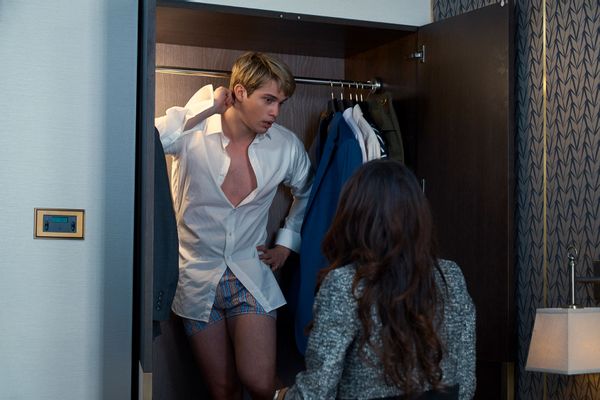 Red, White & Royal Blue (Prime Video)On "Red, White & Royal Blue," Alex and Henry are a little bit older, but have similar journeys to Nick and Charlie's. Alex is already aware of his bisexuality and is open about it in private settings because he is a public figure as the president's son. Alex is the life of the party and even though he's partially closeted, he is very sure of his sexuality. While there is definitely reluctance to come out to his parents (Uma Thurman plays his President mom) — it is something that goes smoothly.
Red, White & Royal Blue (Prime Video)On "Red, White & Royal Blue," Alex and Henry are a little bit older, but have similar journeys to Nick and Charlie's. Alex is already aware of his bisexuality and is open about it in private settings because he is a public figure as the president's son. Alex is the life of the party and even though he's partially closeted, he is very sure of his sexuality. While there is definitely reluctance to come out to his parents (Uma Thurman plays his President mom) — it is something that goes smoothly.
Coming out is intensely personal, and is not owed to anyone.
Henry's personal journey with his sexuality is less smooth considering the expectations set in place as a member of the royal family and its adherence to tradition. He accepts that he can never be fully out even when falls in love with Alex. However, just as he is in a better headspace within himself about his identity, he is outed when his and Alex's texts and emails are leaked to the media, thrusting the couple's romantic relationship into the spotlight.
Despite a sympathetic sister, Henry's family is not as supportive as Alex's. Henry's grandfather as the King of England (Stephen Fry) all but forbids Henry from publicly dating another man, insinuating that it is nearly impossible to be a gay prince because of the role of the Crown and questions about the line of succession. But since this is fiction and not the real royal family (we know how this would've actually ended . . . look at Harry and Meghan), Alex and Henry end up together despite all the cross-cultural boundaries and obstacles.
We need your help to stay independent
Earlier this year on Netflix's "XO, Kitty," the YA rom-com series shot in Korea also explores how highschooler Kitty Covey (Anna Cathcart) discovers she harbors more than platonic feelings for one of her female friends and now is in a bisexual love triangle. While she is still coming to terms with these new feelings, she does reveal them to one friend – a gay boy who is currently out. The series also depicts a closeted young lesbian as one of Kitty's schoolmates, who eventually comes out to her conservative Gen X mother.
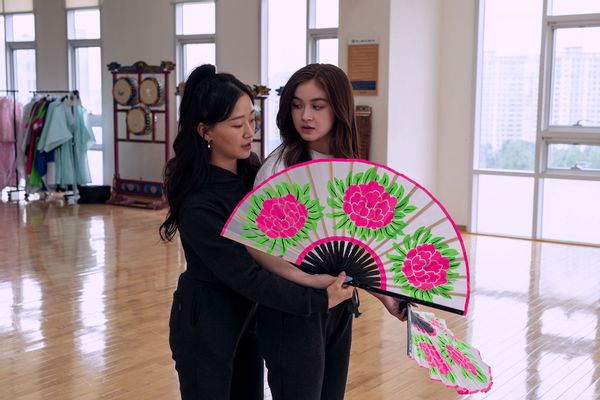 Gia Kim as Yuri and Anna Cathcart as Kitty Song Covey in "XO" (Park Young-Sol/Netflix)Viewers may also recall that last season, '80s-set sci-fi series "Stranger Things" had dropped hints that character Will Byers (Noah Schnapp) is gay and in love with his best friend Mike (Finn Wolfhard). Following this plotline, Schnapp himself came out as gay on TikTok. Meanwhile, on Hulu's "Love, Victor," highschooler Victor (Michael Cimino) discovers his sexuality and over the course of three seasons, he eventually comes out to his ex-girlfriend, his neighbor, his Catholic Latine family and his basketball teammates to varying degrees of receptivity.
Gia Kim as Yuri and Anna Cathcart as Kitty Song Covey in "XO" (Park Young-Sol/Netflix)Viewers may also recall that last season, '80s-set sci-fi series "Stranger Things" had dropped hints that character Will Byers (Noah Schnapp) is gay and in love with his best friend Mike (Finn Wolfhard). Following this plotline, Schnapp himself came out as gay on TikTok. Meanwhile, on Hulu's "Love, Victor," highschooler Victor (Michael Cimino) discovers his sexuality and over the course of three seasons, he eventually comes out to his ex-girlfriend, his neighbor, his Catholic Latine family and his basketball teammates to varying degrees of receptivity.
It's clear that coming out is still a complicated process despite Gen Z's more widespread understanding and acceptance of the gender and sexuality spectrums. How does someone come out? How does someone learn to understand their multifaceted identity? Who do you talk to about how to deal with it? Who do you come out to and with what speed? Massive strides have been made in depicting the process of coming out and how each comes with individual needs and challenges. It's still not perfect, and these examples don't even cover the range of complexities in coming out but it does a great job at broadening our understanding of what coming out looks like for children and young adults today.
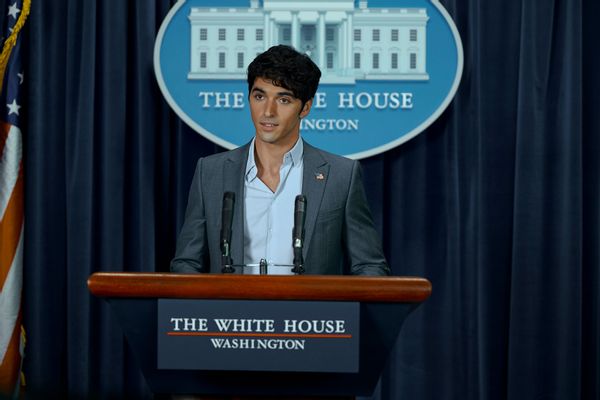 Red, White & Royal Blue (Prime Video)Despite the differences, the one common takeaway that is driven home in all of these stories is that as much is in your control most of it is about finding peace within yourself first before it's something to share with the whole world — and if you wanted, the whole world wouldn't even have to know. Coming out is intensely personal, and is not owed to anyone.
Red, White & Royal Blue (Prime Video)Despite the differences, the one common takeaway that is driven home in all of these stories is that as much is in your control most of it is about finding peace within yourself first before it's something to share with the whole world — and if you wanted, the whole world wouldn't even have to know. Coming out is intensely personal, and is not owed to anyone.
In "Red, White & Royal Blue," Alex says it best in a press conference after his relationship with Henry is outed:
The truth is, every queer person has the right to come out on their own terms and on their own timelines. They also have the right to choose not to come out at all. The forced conformity of the closet cannot be answered with forced conformity in coming out of it. This isn't about shame. This is about privacy and the fundamental right of self-determination, which are exactly the principles on which the struggle for queer liberation has always been fought.
Read more
about coming out
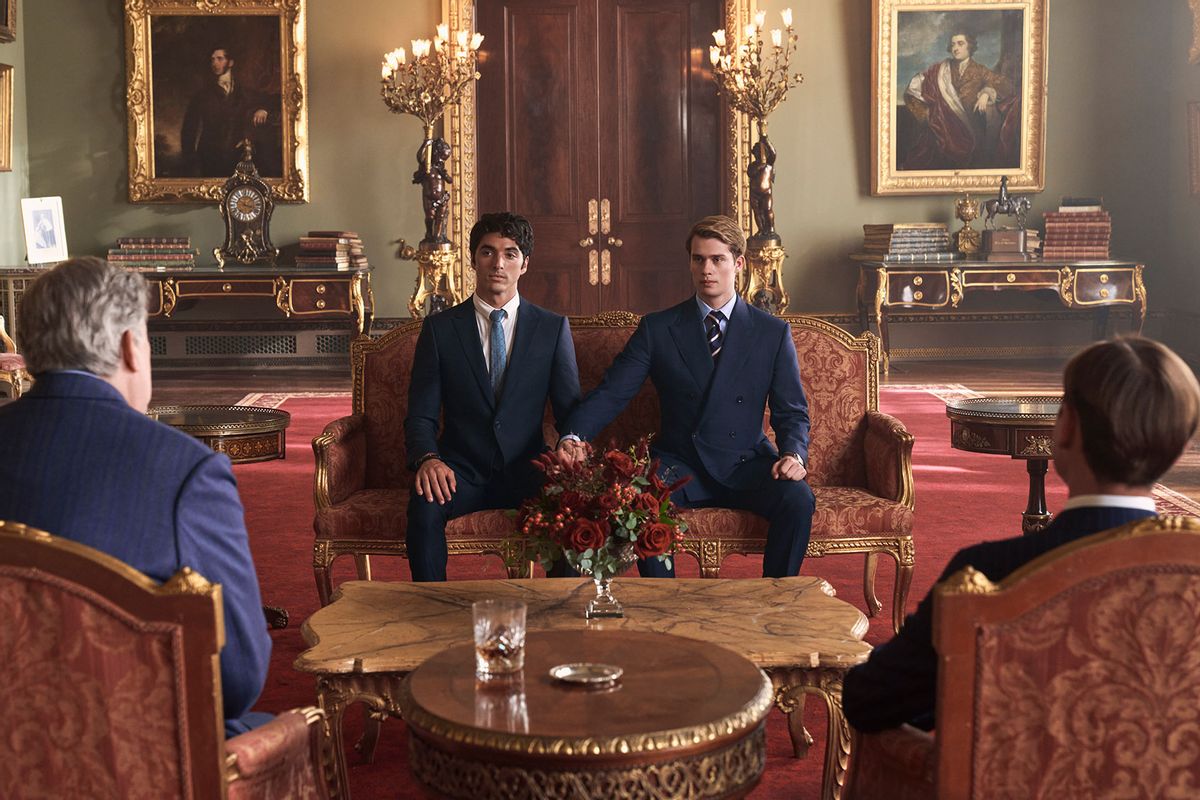
Shares